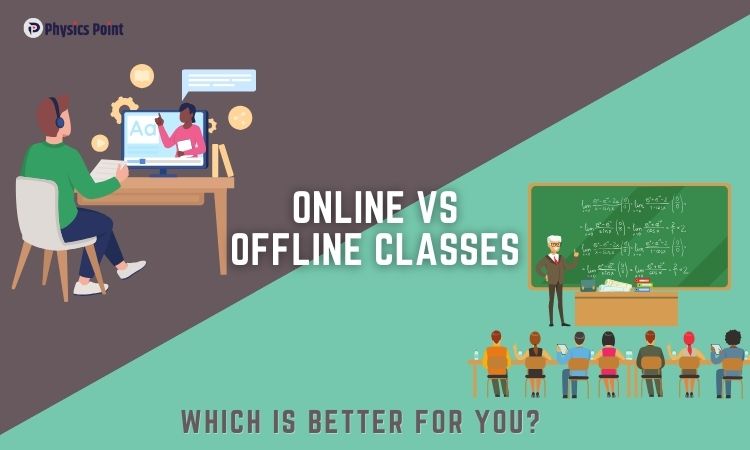
The decision of whether to take an Online vs Offline Classes is a personal one, based on learning style. Benefits of online classes include flexible schedules and low cost which is easy for individuals to study at their own convenient time and pay with their convenient financial status. In contrast, offline classes are more formal, in which students have the opportunity to meet their teachers and peers and receive a more engaging learning environment. It is important to make the right choice in education between online vs offline classes.Online vs Offline Classes
Online and Offline Classes
Online and offline classes both offer distinct approaches to learning, each with its advantages and challenges. Online classes allow students to learn from anywhere, providing flexibility and accessibility, while offline classes focus on in-person interaction, fostering a more personal and structured environment. The choice between these two methods largely depends on individual preferences, learning styles, and goals
What Are Online Classes?
Online classes refer to a form of learning where education is offered through electronic means with the students being able to complete lessons from the comforts of their homes. The advantage of online classes is that it is flexible in the time and one can learn at his or her own pace and time. It is accomplished through devices and technologies like video calls, chats, and forums, which makes it possible and convenient. This is because the courses fit the conditions of comfort, availability, and variety in the best online learning platforms.
What Are Offline Classes?
Offline classes refer to an instructional delivery system in which lecture delivery is done in a classroom learning with direct interaction between students and instructors. These classes have a timetable and would provide good working discipline in attendance. The involvement in classroom learning and teaching enables the students to be quickly corrected, get more attention in instruction, and develop interpersonal communication skills from group assignments and class discussions. Offline education means traditional education methods towards the teaching and learning process, providing an environment for the child’s effective educational experience, engaging students in practical opportunities, and ensuring effective learning.
Pros and Cons of Online Classes
There are pros and cons of online learning:
- The benefits of studying online include easy and flexible accessibility which gives students the chance to learn at their comfort and time.
- They can be generally more economical, such as minimizing travel and material costs.
- These technologies help to develop many resources to assist in learning and education, improving the learning process.
- Self-paced learning fits all students well since they can repeat the materials depending on their needs and speed.
It cannot be completely stated that online education does not have flaws:
- Less time spent on classes can mean less interaction and even less time for group studies and doubt clearing as well
- Depending more on technology can be problematic when the internet connection is not very good.
- Also, personal motivation is important since there is no pressure to work within a certain time frame and the student may neglect the course.
Pros and Cons of Offline Classes
Considering traditional classroom education’s pros and cons, offline lessons are essential for appropriate education and can benefit your preparation in numerous ways.
- Face-to-face learning with the teacher and students is one of the most important offline learning benefits.
- The traditional classroom layout is quite effective for subjects that involve practical aspects such as carrying out experiments in science or modeling in art class.
- Order and discipline involved in learning can facilitate student concentration and motivation.
- It helps in making consistent progress.
However, several drawbacks are associated with offline learning.
- It is usually tiresome because one has to commute to get to the workplace which poses some constraints to productivity and personal time.
- It may not be convenient for some people to choose fixed time, particularly for those who are working professionals or have other engagements.
- Furthermore, traditional education may be more costly due to transport costs, accommodation, and physical class instructional materials.
Key Differences Between Online vs Offline Classes
The major difference between online and offline classes lies in the issues of flexibility, cost, interaction, and accessibility.
| Aspect | Online Learning | Offline Learning |
|---|---|---|
| Flexibility | You can learn anytime as it has flexible times | You have to follow a fixed schedule |
| Cost | The cost is generally lower and it has minimal expenses | The cost is higher as it includes travel and different materials |
| Interaction | Virtual interaction is more | In-person interaction is more |
| Accessibility | This is accessible from anywhere | It is limited to specific locations and needs presence regularly |
Which is Better for Different Types of Learners?
The distinction between the best learning methods for Online vs Offline Classes is simply that learning preferences are different. Students who learn through visuals may benefit from online options like Physics Point where one can easily find videos, notes, and even simulations. Both formats might be useful for auditory learners, though the latter, the classes, including those provided by Physics Point, may be attended flexibly with recorded classes. However, hardworking students keenly interested in physical actions toward learning, prefer offline classes for physical involvement. It can also indicate the most appropriate way to choose between online or offline classes based on learning style.Online vs Offline Classes
Online Classes vs Offline Classes for Competitive Exams (NEET, IIT-JEE, etc.)
Online classes for NEET and IIT-JEE provide convenience and comfort and students have the opportunity to attend classes with teachers of their choice from the comfort of their homes. Sometimes they make recorded lectures, digital notes, and even mock tests available to the learners. Therefore, offline coaching for IIT-JEE and NEET is more disciplined and there are web-based interaction and doubt clearance sessions. Which is the best method for competitive exam preparation may vary according to the approach to learning and the amount of time in one’s schedule.
Conclusion: Choosing the Right Option
While picking between online vs offline education, consider your learning style, timetable, and financial plan. For adaptable and independent students, online classes like Physics Point, famous for its thorough NEET and IIT-JEE preparation, might be the best option for learning. It offers an organized climate and personal connection with studies and teachers, just like offline classes. The study materials provided and the guidance given by the faculties will give a perfect go through with your preparation and syllabus. But in conclusion, it always depends on your decision to check with your necessities and learning objectives for choosing between online and offline classes.


